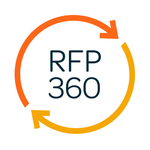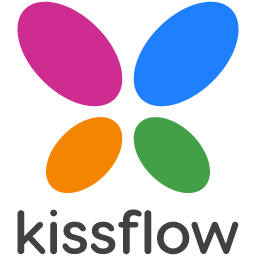Description

ProcurementExpress.com

RFP360
Comprehensive Overview: ProcurementExpress.com vs RFP360
ProcurementExpress.com, RFP360, and SAP Ariba are all prominent tools within the procurement and sourcing industry, each offering a variety of features tailored to different segments of the market. Here's a comprehensive overview of each:
ProcurementExpress.com
a) Primary Functions and Target Markets:
- Primary Functions: ProcurementExpress.com primarily focuses on simplifying purchase order management and approval workflows. It offers tools for managing budgets, tracking spending, and ensuring that procurement processes are efficient and transparent. The platform is known for its user-friendly interface, which enables businesses to easily create, approve, and track purchase orders.
- Target Markets: This product typically targets small to mid-sized businesses (SMBs) across various industries, especially those looking for a straightforward and cost-effective way to manage procurement without extensive infrastructure.
b) Market Share and User Base:
- ProcurementExpress.com is relatively niche compared to some larger solutions in the market. It has a dedicated user base among SMBs looking for cost-effective and easy-to-use solutions. The market share is smaller compared to large-scale enterprise solutions like SAP Ariba.
c) Key Differentiating Factors:
- User-Friendly Interface: One of the major differentiators is its emphasis on simplicity and ease of use, making it accessible for businesses without extensive procurement teams.
- Affordability: It typically offers competitive pricing suited to smaller businesses.
- Focus on Purchase Orders: Their specific focus on purchase order management makes them standout among SMBs who do not need extensive procurement features.
RFP360
a) Primary Functions and Target Markets:
- Primary Functions: RFP360 specializes in the management of requests for proposals (RFPs), vendor responses, and related documents. It provides a platform for organizations to create, distribute, and evaluate RFPs efficiently, optimizing the sourcing process.
- Target Markets: The platform is ideal for enterprises and public-sector organizations that routinely manage complex RFPs and need a robust tool to streamline this part of the procurement process.
b) Market Share and User Base:
- While not as large as SAP Ariba, RFP360 has a respectable presence in sectors where RFPs are frequent and critical, such as government, education, and large enterprises.
c) Key Differentiating Factors:
- Focus on RFPs: RFP360 is particularly strong in managing the end-to-end RFP process, unlike many broader procurement solutions that only offer RFP management as an add-on feature.
- Document Management and Collaboration: Offers comprehensive tools for document management and collaboration throughout the RFP process.
- Specialized Features: Includes specialized features designed specifically to enhance decision-making in the RFP process.
SAP Ariba
a) Primary Functions and Target Markets:
- Primary Functions: SAP Ariba is one of the most comprehensive procurement solutions available. It offers a wide range of features including supplier discovery and management, procurement, sourcing, contract management, and spend management. It integrates seamlessly with other SAP solutions, providing extensive analytics and insights.
- Target Markets: SAP Ariba primarily targets large enterprises and multinational corporations. Its extensive suite of tools and integration capabilities make it well-suited for complex, global procurement environments.
b) Market Share and User Base:
- SAP Ariba holds a significant market share in the global procurement software market, with a strong presence among Fortune 500 companies and large organizations worldwide.
c) Key Differentiating Factors:
- Comprehensive Suite: Offers an extensive array of procurement functions, making it suitable for large-scale, complex procurement needs.
- Integration with SAP ERP: Deep integration with SAP's ERP solutions provides unmatched data synergy and analytics capabilities.
- Global Network: Houses one of the largest business networks facilitating global trade and supplier collaboration.
Comparative Summary:
- Market Position: SAP Ariba is ideal for large enterprises seeking an all-encompassing procurement tool, while ProcurementExpress.com appeals to SMBs needing simplicity and RFP360 targets organizations with a specific need for RFP management.
- Ease of Use vs. Functionality: ProcurementExpress.com scores high on ease of use, whereas SAP Ariba provides extensive functionality at the cost of complexity. RFP360 offers a balance, focusing on simplifying the RFP process.
- Pricing: ProcurementExpress.com offers a more budget-friendly option for smaller businesses; SAP Ariba, while more expensive, provides extensive features and capabilities for large organizations; RFP360’s pricing aligns with those seeking specialized RFP solutions.
Understanding the specific needs and scale of your organization will help in choosing the right tool among these options.
Contact Info

Year founded :
2014
+353 1 901 0336
Not Available
Ireland
http://www.linkedin.com/company/procurementexpress

Year founded :
2012
+1 844-737-0365
Not Available
United States
http://www.linkedin.com/company/rfp365
Feature Similarity Breakdown: ProcurementExpress.com, RFP360
When comparing procurement and RFP management software like ProcurementExpress.com, RFP360, and SAP Ariba, it's helpful to look at core features, user interface, and unique attributes. Here's a breakdown:
a) Core Features in Common
-
Purchase Order Management:
- All three platforms offer functionality for creating, managing, and tracking purchase orders. This helps streamline the procurement process and ensures compliance.
-
Supplier Management:
- Each platform includes features for managing supplier information, which is crucial for evaluating supplier performance and maintaining relationships.
-
Approval Workflows:
- Automated approval processes are standard, allowing users to set criteria-based workflows to manage approvals efficiently.
-
Budget Tracking:
- All include budget management features, enabling businesses to track spending against budgets and prevent overspending.
-
Reporting and Analytics:
- Providing insights through reporting and analytics is crucial, and all three platforms offer these capabilities to help users make informed decisions.
b) User Interface Comparison
-
ProcurementExpress.com:
- Generally praised for its simplicity and ease of use, ProcurementExpress.com has an intuitive interface designed to cater to small to medium-sized businesses. Its focus is on user-friendliness and quick onboarding.
-
RFP360:
- RFP360's interface is more focused on the RFP process, with tools that streamline the creation, distribution, and evaluation of RFPs. Its layout is clean and designed for RFP-specific workflows.
-
SAP Ariba:
- Known for its comprehensive functionality, SAP Ariba's interface can be complex. It's designed for large enterprises, offering a wide range of features that might require more training to use effectively. The interface is robust but may not be as intuitive as more niche solutions.
c) Unique Features
-
ProcurementExpress.com:
- One of its unique features is a strong emphasis on ease of use and rapid deployment, making it an attractive choice for smaller businesses that need basic procurement functionality without the complexity.
-
RFP360:
- RFP360 excels in its RFP-specific features, including a 360-degree view of RFP processes, AI-driven suggestions for RFP responses, and collaboration tools designed to enhance team cooperation in the RFP management process.
-
SAP Ariba:
- As part of the SAP ecosystem, SAP Ariba offers extensive integration with other SAP products. It’s known for its robust sourcing and contract management features, as well as its supplier risk management capabilities. The Ariba Network also provides a large marketplace for buyers and suppliers to connect, which is a unique advantage.
Ultimately, the choice between these platforms often depends on the specific needs of the organization, such as the size of the company, the complexity of procurement processes, and the specific focus on features like RFP management or supplier networks.
Features

Budget Tracking
Integration Capabilities
User-Friendly Interface
Approval Workflow
Easy Purchase Orders

Proposal Management
Vendor Management
Performance Analytics
Best Fit Use Cases: ProcurementExpress.com, RFP360
When considering procurement and RFP management solutions like ProcurementExpress.com, RFP360, and SAP Ariba, it’s important to understand the strengths and target market of each platform to determine which is best suited for specific business needs.
a) ProcurementExpress.com
Best Fit Use Cases:
- Small to Medium-Sized Enterprises (SMEs): ProcurementExpress.com is ideal for smaller businesses that need a straightforward, user-friendly solution to manage and control their spending without overwhelming features.
- Project-Based Organizations: Companies that operate on a project basis and need to manage budgets and procurement efficiently benefit from its easy-to-use interface and cost management tools.
- Businesses Seeking Rapid Deployment: With its cloud-based setup and intuitive design, organizations looking to quickly implement a procurement solution find this platform beneficial.
Industry and Company Size:
- Typically caters to companies in various industry verticals like education, construction, and non-profits where budget oversight and control are crucial.
- Excels in environments where procurement processes can be simplified, and there is less complexity in supplier collaboration and contract management.
b) RFP360
Preferred Scenarios:
- Organizations with Frequent RFP and RFI Needs: RFP360 is specifically designed for businesses that need to create, issue, and manage requests for proposals efficiently. It centralizes the RFP process, making it easier to collaborate and communicate with stakeholders.
- Companies Focusing on Vendor Selection and Evaluation: Firms that require robust tools for vendor comparison, scoring, and decision-making find RFP360 especially useful.
- Procurement Teams Seeking Collaboration: In environments where a significant amount of collaboration between procurement teams and stakeholders is necessary, RFP360 provides tools that streamline communication and feedback.
Industry and Company Size:
- Well-suited for technology firms, government agencies, healthcare organizations, and other sectors that often engage in complex procurement processes.
- Useful for mid-sized to large enterprises where RFP management is a critical component of procurement strategy.
c) SAP Ariba
Consideration Factors:
- Large Enterprises with Complex Procurement Needs: SAP Ariba is a comprehensive suite meant for larger organizations with a need for integrated procurement processes that span various geographies and business units.
- Businesses Seeking End-to-End Solutions: Companies looking for an all-encompassing procurement solution that includes spend analysis, contract management, supplier management, and more, benefit from SAP Ariba’s expansive capabilities.
- Industries Requiring Strict Compliance and Risk Management: Industries such as manufacturing, pharmaceuticals, and financial services, where compliance and risk management are paramount, find value in SAP Ariba’s complex, rule-based solutions.
Industry and Company Size:
- Designed to cater to virtually any industry, particularly complex industries like oil and gas, finance, and government that require extensive supply chain management capabilities.
- Best suited for large, multinational corporations due to its scalability and comprehensive feature set that addresses multifaceted procurement challenges.
d) Catering to Different Industry Verticals or Company Sizes
- ProcurementExpress.com is more inclined towards smaller entities and easier, project-focused verticals due to its simplicity and cost-effectiveness.
- RFP360 serves a niche market in RFP management, making it ideal for mid to large organizations across industries like technology, government, and healthcare where proposal handling is frequent and skill-intensive.
- SAP Ariba shines in complex, multinational environments, providing vast integration capabilities suitable for large businesses across nearly all industries that demand robust procurement and supply chain management.
In summary, the choice between these platforms depends on the organization’s size, industry, complexity of procurement needs, and specific process requirements like budget control, RFP management, or end-to-end procurement solutions.
Pricing

Pricing Not Available

Pricing Not Available
Metrics History
Metrics History
Comparing teamSize across companies
Conclusion & Final Verdict: ProcurementExpress.com vs RFP360
To determine which procurement solution among ProcurementExpress.com, RFP360, and SAP Ariba offers the best overall value, we need to consider various factors such as price, functionality, ease of use, integration capabilities, customer support, and scalability. Here's a summary analysis:
ProcurementExpress.com
Pros:
- User-Friendly: Known for its intuitive interface, it’s suitable for small to medium-sized businesses looking for a straightforward purchase order system.
- Affordability: Offers competitive pricing with a focus on ease of use and rapid deployment.
- Mobile Access: Provides a mobile app for users to manage approvals and requests on the go.
- Fast Setup: Quick implementation with minimal IT involvement necessary.
Cons:
- Limited Features: May lack the comprehensive features required by large enterprises or industries with complex procurement needs.
- Scalability Constraints: Better suited for smaller organizations; may not scale well with very large operations.
- Integration Options: Compared to larger platforms, it has fewer integration options with other enterprise systems.
RFP360
Pros:
- Specialized Focus: Strong capabilities in managing RFPs, RFIs, and RFQs with an emphasis on centralized document management and collaboration.
- User Interaction: Ability to streamline supplier interaction, making it ideal for complex proposal evaluations.
- Analytics and Reporting: Provides robust tools for analyzing vendor responses and decision-making.
Cons:
- Niche Application: Primarily focused on RFPs, which may not satisfy broader procurement needs such as order management or invoicing.
- Learning Curve: Users might experience a steeper learning curve due to the robust features related specifically to RFP management.
- Price Point: While offering specialized features, this tool can be costly if those specific features are not fully utilized.
SAP Ariba
Pros:
- Comprehensive Suite: Offers an extensive range of procurement solutions, ideal for large enterprises needing advanced functionalities (e.g., spend analysis, contract management, supplier management).
- Integration Capabilities: Seamlessly integrates with other SAP products and various third-party solutions, benefitting organizations with complex IT environments.
- Global Reach and Experience: Large-scale support with a global network, benefitting multinational organizations.
Cons:
- Complexity: Known for its complex setup and management, which can require significant time and expertise.
- Cost: Generally one of the more expensive solutions, potentially cost-prohibitive for smaller organizations.
- Usability Concerns: Can be overwhelming for new users due to the breadth of functionality available.
Final Verdict and Recommendations
Best Overall Value:
- For large enterprises with complex procurement needs and the necessary IT resources, SAP Ariba offers the best overall value due to its comprehensive suite of features and integration capabilities.
- For small to medium-sized businesses or startups focused on cost-effectiveness and simplicity, ProcurementExpress.com provides strong value through its affordable pricing and ease of use.
- Organizations whose primary need is managing RFPs may find RFP360 to offer the best value for its specialized features, especially when those features are effectively leveraged.
Recommendations:
- Small to Medium Enterprises (SMEs): Consider ProcurementExpress.com if ease of use, affordability, and quick setup are your priorities.
- Large Enterprises: Opt for SAP Ariba if you need a comprehensive solution that can handle complex procurement workflows and have the budget and resources to support its implementation.
- Specialized RFP Requirements: Choose RFP360 if your primary focus is on managing requests for proposal processes and vendor interactions.
Ultimately, the decision should be based on the specific needs and resources of your organization, including budget constraints, IT capabilities, and long-term procurement goals. It’s advisable to conduct a trial or demo of these products, if possible, to assess which fits best with your operational requirements.
Add to compare
Add similar companies



